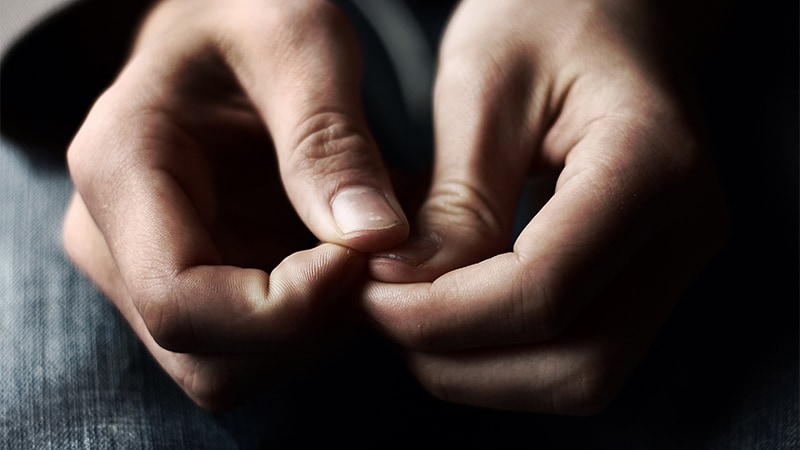An investigational, orally dissolving film formulation of dexmedetomidine (BXCL501, BioXcel Therapeutics) can rapidly relieve mild to moderate acute agitation in patients with bipolar disorder (BD), new research suggests.
The phase 3 SERENITY II trial included almost 400 adults with bipolar I or II disorder and acute agitation.
Results showed relief from acute agitation kicked in beginning at 20 minutes after administration of the treatment and continued to 120 minutes, reported principal investigator Sheldon H. Preskorn, MD, professor, Department of Psychiatry and Behavioral Sciences, University of Kansas School of Medicine-Wichita, and colleagues.
“Patients who are mild-to-moderately agitated in whom there is the potential for escalation to more severe agitation,” are good candidates for sublingual dexmedetomidine, Preskorn told Medscape Medical News.
He noted that while “comparative claims require comparative studies,” a key advantage is that it “can be self-administered by patients reliably because of the adherence of the film to the mucosa.”
The findings were published online February 22 in the Journal of the American Medical Association.
Tough-to-Manage Symptom
Preliminary results were presented at the American Psychiatric Association (APA) 2021 Annual Meeting and reported by Medscape Medical News at that time.
Agitation is a common and tough-to-manage symptom associated with multiple neuropsychiatric conditions, including bipolar disorder.
The phase 3 SERENITY II trial enrolled 380 adults (mean age, 45 years; 55% women) with bipolar I or II disorder and acute agitation in the emergency department.
All participants had a total score of 14 or greater on the five items of the Positive and Negative Syndrome Scale-Excited Component (PEC) scale at baseline and a score of 4 or greater on at least one PEC item.
Patients were randomly allocated to a single dose of sublingual dexmedetomidine (120 µg or 180 µg) or placebo. All but two patients completed the study.
Baseline agitation was mild to moderate, with an overall mean PEC total score of 18.
Rapid Relief
Mean change from baseline in the PEC total score at 2 hours (primary endpoint) was -9 and -10.4 with the 120 mcg and 180 mcg doses of sublingual dexmedetomidine, respectively, vs -4.9 for placebo.
Least-square mean differences from placebo in the sublingual dexmedetomidine groups at 2 hours were statistically significant for both doses (both, P < .001 vs placebo).
Statistically significant treatment effects were first evident 20 minutes after dosing for both of the dexmedetomidine doses vs placebo.
Patients in both active-treatment groups showed greater improvement in PEC total score than patients in the placebo group at all subsequent timepoints through 2 hours post-dosing.
Sublingual dexmedetomidine was also associated with significant improvement on the secondary outcomes of Clinical Global Impressions–Improvement and Agitation-Calmness Evaluation Scale.
Adverse events occurred in 35.7% and 34.9% of patients taking 180 µg and 120 µg sublingual dexmedetomidine, respectively, compared with 17.5% of patients taking placebo.
The most commonly reported AEs were somnolence, dry mouth, hypotension, and dizziness. No treatment-related serious or severe AEs were reported.
FDA Action Date: April 5
In an accompanying editorial, John K. Hsiao, MD, National Institutes of Health, Bethesda, Maryland, notes that an “out-of-control, agitated, possibly aggressive patient in a medical setting is a crisis demanding swift and safe resolution.
“Today, emergency departments now rival and perhaps surpass psychiatric units as settings where out-of-control, agitated patients must be managed,” Hsiao notes.
The current study “provides evidence to support a novel, potentially important addition to the armamentarium for managing behavioral agitation,” he writes.
BioXcel Therapeutics has submitted a new drug application to the US Food and Drug Administration (FDA). The Prescription Drug User Fee Act (PDUFA) target action date is April 5.
In a statement, Frank D. Yocca, PhD, chief scientific officer of BioXcel Therapeutics, said the company is looking forward to potential FDA approval of the treatment for agitation associated with bipolar disorders and schizophrenia.
“Building on the strength of these compelling data, we are also confidently progressing BXCL501 as a potential acute treatment for agitation associated with Alzheimer’s disease,” Yocca added.
The study was funded by BioXcel Therapeutics Inc. Preskorn reported receiving consulting fees from BioXcel and receiving research grants from, serving as a consultant for, on advisory boards of, and on the speakers bureau of Alkermes, BioXcel Therapeutics, Eisai, Janssen, Novartis, Otsuka, Sunovion, and Usona Institute. Hsiao has disclosed no relevant financial relationships.
JAMA. Published online February 22, 2022. Abstract, Editorial
For more Medscape Psychiatry news, join us on Twitter and Facebook
Source: Read Full Article
